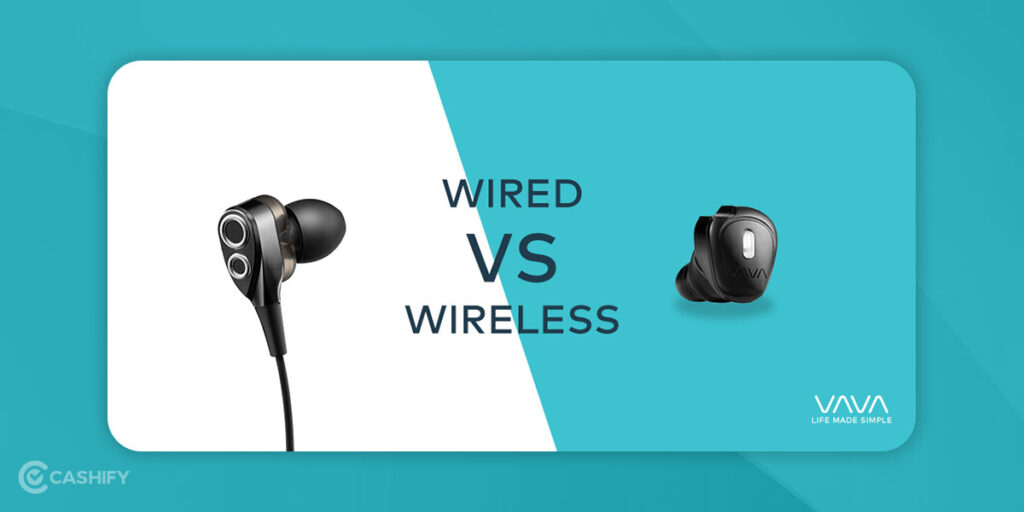In the world of personal audio, the choice between wired and wireless headphones has become a major point of contention. Each has its own set of advantages and drawbacks, and deciding which one is right for you can be a challenging task. Whether you’re an audiophile in pursuit of the highest sound quality or simply looking for a convenient and cord-free listening experience, this article will explore the key differences between wired and wireless headphones to help you make an informed choice.
Wired Headphones: The Classics
Wired headphones have been around for decades and have stood the test of time for several reasons. Let’s take a closer look at the benefits and drawbacks of this classic technology.
Pros of Wired Headphones:
Sound Quality: One of the most significant advantages of wired headphones is their exceptional sound quality. The wired connection ensures a stable and lossless transmission of audio, allowing for high-resolution audio playback. Audiophiles often prefer wired headphones for their ability to deliver the most authentic and detailed sound.
Reliability: Wired headphones are reliable. You don’t have to worry about batteries running out, interference, or compatibility issues. Plug them in, and they work, regardless of your device.
Low Latency: For gamers and music producers, low latency is crucial. Wired headphones offer minimal delay, providing a seamless audio experience during gameplay or while recording and editing audio.
Price: Wired headphones are typically more budget-friendly than their wireless counterparts. You can find high-quality wired headphones at a fraction of the cost of wireless options.
Cons of Wired Headphones:
Tangled Wires: The most apparent drawback of wired headphones is, well, the wires. They tend to tangle easily and can be a nuisance when on the move.
Limited Mobility: You are physically tethered to your device with wired headphones. This can restrict your movement, making them less suitable for activities like jogging or workouts.
Device Compatibility: Newer devices, such as smartphones and laptops, are increasingly eliminating headphone jacks. This means you may need an adapter to use your wired headphones with these gadgets.
Wireless Headphones: The Modern Marvels
Wireless headphones represent the cutting edge of audio technology, offering a plethora of features that cater to the contemporary consumer. Here’s a closer look at the pros and cons of these modern marvels.
Pros of Wireless Headphones:
Freedom of Movement: The absence of cords allows for a liberating listening experience. Whether you’re at the gym, commuting, or simply moving around your home, wireless headphones offer unrestricted mobility.
Convenience: No more untangling knots of wires. Wireless headphones are hassle-free to use, often featuring intuitive touch controls and voice assistants for seamless operation.
Noise Cancellation: Many wireless headphones come with active noise-cancellation technology, which can significantly reduce or eliminate ambient noise, creating an immersive audio environment.
Long Battery Life: With advancements in battery technology, wireless headphones can now provide hours of playback on a single charge. This means you can use them throughout the day without worrying about running out of power.
Cons of Wireless Headphones:
Sound Quality: While wireless audio quality has improved, it may not match the level of wired headphones, especially for audiophiles who demand the highest fidelity. Bluetooth connections can still introduce some compression and loss of audio data.
Price: Quality wireless headphones can be expensive, often costing more than their wired counterparts with similar sound quality.
Battery Dependency: Wireless headphones rely on batteries, which means you’ll need to recharge them regularly. Forgetting to charge your headphones can lead to disappointment when you want to use them.
Interference: In crowded wireless environments, like busy urban areas, you may experience signal interference that disrupts your audio playback.
Making the Right Choice
Choosing between wired and wireless headphones ultimately depends on your individual preferences and how you plan to use them. Here are some factors to consider:
Sound Quality: If you’re a discerning listener who values the highest sound quality and enjoys critical listening, wired headphones may be the better choice.
Mobility and Convenience: If you prioritize convenience, freedom of movement, and a hassle-free listening experience, wireless headphones are the way to go.
Budget: Consider your budget, as quality wireless headphones can be more expensive than wired options with similar sound quality.
Usage Scenario: Think about where and how you’ll use your headphones. If you need them for workouts, travel, or other on-the-go activities, wireless headphones offer more flexibility.
Device Compatibility: Ensure that your chosen headphones are compatible with your devices, especially if they lack traditional headphone jacks.
Battery Life: If you plan to use your headphones for extended periods, pay attention to their battery life and the ease of recharging.
Conclusion
The choice between wired and wireless headphones is not a one-size-fits-all decision. Each has its unique set of advantages and disadvantages, and what matters most is how well they align with your specific needs and preferences. Consider your listening habits, lifestyle, and budget when making your choice, and you’re bound to find the perfect pair of headphones to enhance your audio experience. Whether you go for the timeless reliability of wired headphones or the futuristic convenience of wireless ones, the world of personal audio has something for everyone.



